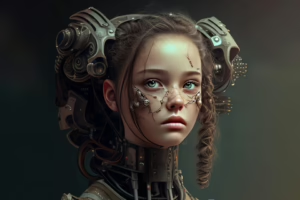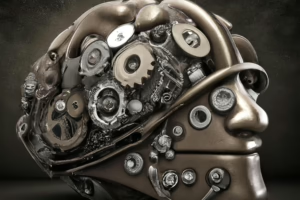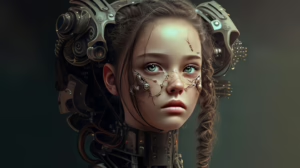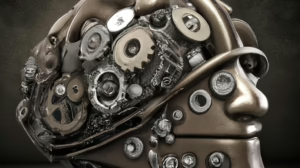The Rise of AI in Cinema: How Artificial Intelligence is Changing Storytelling
Introduction
The cinematic landscape has always been a reflection of societal changes, technology, and human creativity. The advent of artificial intelligence (AI) is no exception, as it fundamentally alters not only the production process but also the very nature of storytelling in film. From pre-production to post-production, AI is being utilized in innovative ways, allowing filmmakers to explore narratives and concepts previously deemed impossible. This article delves into the multifaceted impact of AI in cinema, examining how it is redefining storytelling through various dimensions such as scriptwriting, visual effects, audience engagement, and distribution.
The Role of AI in Scriptwriting
Enhancing Creativity
One of the most promising applications of AI in film is in the realm of scriptwriting. Traditionally a domain reserved for human creativity, AI tools are being tested to assist or even generate scripts. Natural Language Processing (NLP) algorithms can analyze existing stories, understand plot structures and character arcs, and suggest new content based on audience preferences.
For instance, the AI tool "ScriptBook" analyzes scripts and provides insights into how audiences might react. By processing millions of screenplays and box office results, AI allows filmmakers to gauge the potential success of a story before it’s even filmed. This not only helps in honing the narrative but also in understanding what resonates with current audiences. However, as much as AI can suggest ideas or streamline the writing process, the final script still requires the unique human touch to evoke genuine emotion.
Ethical Considerations
The integration of AI into scriptwriting brings forth ethical dilemmas. Who holds the creative rights if an AI generates a script or a significant portion of it? The ramifications of AI in this space are profound, raising questions about authorship and the value of human creativity. As AI-generated scripts become more sophisticated, the debate surrounding intellectual property rights will intensify, challenging traditional norms in the industry.
AI in Pre-Production
Predictive Analysis
AI’s role in pre-production extends beyond script development. Filmmakers can utilize predictive analysis to make informed decisions on casting, location, and budget allocation. AI tools can evaluate the demographics and past performance of actors, locations, and crew members, optimizing choices based on data. For example, tools like Cinelytic provide insights on which actors have the potential to attract viewers, thereby guiding investment decisions.
Scheduling and Budgeting
AI-driven software can streamline the scheduling and budgeting process. Scheduling is often a complex task involving multiple stakeholders and logistics. AI can analyze historical data and suggest optimal shooting schedules, taking into account factors like weather conditions, actor availability, and other logistical constraints. Budgeting, too, can be enhanced through the use of AI, as it can model financial scenarios, forecast expenses, and even identify potential cost overruns.
Visual Effects and Post-Production
Revolutionizing Visual Storytelling
The most visually captivating films often rely heavily on special effects. AI technologies such as machine learning and deep learning have made significant strides in the world of visual effects. For example, AI can be used to automate rotoscoping—a process that traditionally involves painstakingly tracing over footage to create masks for visual effects. AI algorithms can perform these tasks faster and more accurately.
AI can also be used in generating realistic CGI characters that can mimic human emotions and actions, making them appear lifelike. Notably, projects like "The Irishman" employed AI for de-aging effects, showcasing the potential of this technology to manipulate visuals in ways that enhance storytelling, providing emotional depth while maintaining continuity.
Enhancing Editing Processes
Editing is a crucial phase in the filmmaking process. Traditional editing requires hours spent sifting through raw footage to find the ideal shots. AI algorithms can analyze footage and recommend cuts based on pacing, emotional impact, and narrative coherence. By automating mundane editing tasks, filmmakers can devote more time to crafting the story and ensuring that the final product resonates with audiences.
Audience Engagement Through AI
Personalized Experiences
As cinema trends toward individualized experiences, AI plays a critical role in optimizing viewer engagement. Streaming platforms like Netflix use AI algorithms to analyze user behavior, viewing patterns, and preferences, helping them curate personalized content recommendations. Such personalization enhances user engagement, ensuring that viewers are continually interested in the content being offered.
AI can further enhance interactivity in cinema. Innovations such as "choose your adventure" films, where viewers can select different story paths, leverage AI to adapt the narrative in real-time based on audience choices. This convergence of AI and storytelling allows for immersive experiences, breaking the fourth wall and making viewers active participants in the narrative.
Community Building
Beyond personalization, AI also facilitates community engagement through targeted marketing strategies. Social media platforms employ AI to analyze public sentiment and audience reactions to various movies. By understanding community dynamics, studios can better promote their films, create engaging marketing campaigns, and even tailor content that resonates more effectively with specific audiences.
Case Studies: AI in Action
"Sunspring"
A notable example of AI’s direct involvement in scriptwriting is the short film "Sunspring," penned entirely by an AI named Benjamin. The film is both intriguing and perplexing, consisting of nonsensical dialogue that nevertheless results in an engaging viewership experience. While the film underscores the limitations of AI in capturing human emotion fully, it also exemplifies the potential for AI collaboration in the creative arts.
"The Terminator"
The "Terminator" franchise has also hinted at AI’s capacity to manipulate narratives. Paradoxically, while exploring dystopian themes surrounding AI, the franchise contributes to discussions about the real-world implications of its capabilities. This dual narrative—fictionally portraying AI as an imminent threat while concurrently exploring its potential for creative expression—mirrors the contemporary discourse surrounding technology.
Pixar’s "Luca"
Pixar has also embraced AI to enhance their storytelling process. In their film "Luca," the studio employed AI tools to simulate realistic water behavior for animated sequences. This not only added visual richness but also served to convey thematic elements within the story. The technology enabled the animation team to achieve a level of detail that resonated with audiences, blurring the line between reality and animation.
Future Implications of AI in Cinema
The Democratization of Filmmaking
AI’s role in cinema could significantly democratize the filmmaking process, breaking down barriers that traditionally existed within the industry. With AI tools becoming more accessible, aspiring filmmakers can leverage technology to bring their stories to life without the need for hefty investments. This democratization may lead to a renaissance of creativity, with diverse narratives emerging from previously marginalized voices.
Preserving Authenticity
The ease with which AI can create content raises concerns about authenticity and originality. As the line between human-generated and AI-generated content blurs, it becomes imperative to maintain the essence of storytelling—the human experience. A balance must be struck where AI is used as a tool rather than a crutch, ensuring that stories remain rooted in truth, emotion, and authenticity.
Evolving Roles of Creatives
As AI continues to evolve, so too will the roles of various individuals in the filmmaking process. Writers, directors, and producers may find their roles shifting from traditional practices to collaborative partnerships with AI. Emphasizing creative judgment alongside technological capabilities, the industry may embrace a new paradigm of collaboration that redefines the very nature of filmmaking.
Conclusion
The rise of AI in cinema marks a transformative shift in storytelling, offering new tools and insights that enhance the creative process. Although the integration of AI comes with challenges and ethical dilemmas, its potential to augment human creativity is undeniable. As the industry navigates this evolving terrain, the focus must remain on preserving the foundation of storytelling—connecting audiences with authentic and relatable narratives.
The cinema of the future may blend human intuition with algorithmic efficiency, forging a new path for filmmakers and audiences alike. Embracing this change with an open mind, the film industry stands on the brink of a new era of storytelling, one that celebrates both the genius of human creativity and the promise of artificial intelligence.
References
- AI and Scriptwriting: [source]
- Cinelytic Predictive Analysis: [source]
- "Sunspring" Case Study: [source]
- AI in Visual Effects: [source]
- Democratization of Filmmaking: [source]
- Ethical Considerations of AI: [source]
This outline aims to provide a comprehensive perspective on how AI is changing storytelling in cinema, fostering a multi-dimensional narrative that incorporates various elements of the filmmaking process. As the film industry continues to evolve, the relationship between AI and creative expression will serve as an ongoing dialogue, exploring the myriad ways technology can enhance our understanding and appreciation of storytelling.


























Add Comment